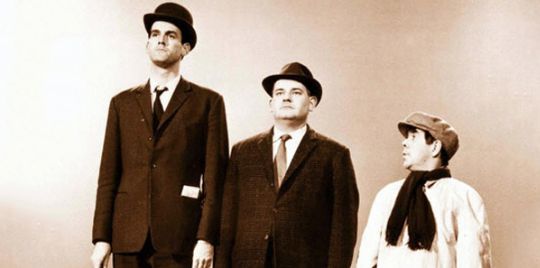How many of us 'want to live like common people'?

It's safe to say the Independent's Voices column was of a different class this week. Commentator and stand-up comedian Mark Steel used his column inches to point out that:
"Labour says the working class no longer exists, so why do 60 per cent of us claim to belong to it?"
Class can, of course, be measured in all sorts of different ways, depending on one's perspective. In this case, self identification is the measure of choice so, according to "a survey this week", most of us think we're working class. Is it that simple?
Well, let's take a look at the source. Gaby Hinsliff reported in the Guardian on Sunday that 60% of Britons claim to be proletarian, based on findings from the think-tank British Future. Sure enough, British Future features social class research in their State of the Nation Report 2013.
British Future commissioned the polling organisation Ipsos Mori to survey over 2,500 adults aged 16-75 in Great Britain. Respondents were asked:
"Most people say they belong either to the middle class or the working class. If you had to make a choice, would you call yourself middle class or working class?"

So indeed just under three-fifths of respondents self-identified as working class, given a simple two-option choice between that or middle class. What's more, Ipsos Mori have asked the same or similar question in surveys dating back to the 1980s. This demonstrated a progressively narrowing gap between the two classes since a peak in 1989, when 67% people thought of themselves as working class.
At first glance this looks like pretty convincing proof that most of us self-identify as working class.
Time, then, to muddy the waters. Compare the reports we've seen this week to two Independent reports from 2011:
"Class exclusive: Seven in 10 of us belong to Middle Britain"
Both reports cite the same survey: a Britain Thinks online poll from 2010 investigating which classes British people place themselves in. Sure enough, they found that only 24% of respondents self-identified as working class, compared to 71% identifying as middle class. This is not far from being the complete reverse of the British Future findings; barely two years separate the two polls.
What's going on? Looking in more detail, Britain Thinks asked:
"If you had to say which social class you belong to, which would it be?"

These findings are backed up by a separate poll conducted earlier in the same year by YouGov for the Daily Telegraph, asking the same question and finding:

What's noticeable is that, given more options, fewer people in these surveys identified as simply 'working class'. We might reasonably assume that some respondents who would have been 'working class' in the recent British Future poll would have shown up as 'lower middle' class in the Britain Thinks poll, presented with this larger menu of options.
Theories along these lines are strengthened by yet another YouGov poll from the following year. In 2011, the polling organisation asked:
"Which of the following would you say best describes you?"

Presented with a further option - 'upper working', 12% of respondents self-identified in this category. This means that, in the space of a year, YouGov respondents self-identifying as working class increased from a total of 30% to a total of 48%. Some of this is likely due to the change in question format.
We've seen many times before how the format and wording of a question changes the outcome of the poll, sometimes substantially, and this issue looks no different. Before concluding from one poll that most people identify as working class, we need to check who's asking.